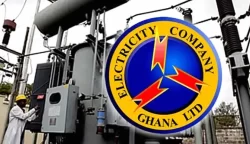Fresh concerns are being raised over revenue leakages in the upstream petroleum sector, as internal data and a confidential Ghana Revenue Authority (GRA) report estimate annual revenue losses of between US$350million and US$400million due to discrepancies in declared oil volumes.
Executive Secretary-Chamber of Petroleum Consumers (COPEC) Duncan Amoah, speaking at the fifth anniversary celebration of operationalising Strategic Mobilisation Ghana Ltd. (SML), described the scale of under-reporting in the upstream sector as “alarming”.
“We cannot continue to produce 100,000 barrels of oil and only report 60,000. Where the 40,000 barrels go remains a question because we lack the mechanisms to verify entries at each stage of production and export. The state is losing enormous sums and without transparency we will keep subsidising opacity.”
To this end, government officials and key stakeholders are being impressed upon to prioritise upstream resource governance in the same way downstream operations have benefitted from monitoring systems in recent years.
Referring to SML’s success in helping GRA recover an estimated GH¢20billion in downstream petroleum revenues over a four-year period, Mr. Amoah argued that the upstream segment, if properly monitored, could generate “two to three times more” in state revenue.
“We are losing too much because the systems in place allow producers to report what they choose. This must change,” he added.
Although in the past Mr. Amoah had initially been one of SML’s harshest critics, after personally reviewing the company’s operations and systems he reversed his position. “Once I saw the technology and the data for myself, it became clear that SML is not a political gimmick – it is a technical solution to a longstanding problem,” he said.
With the country relying heavily on oil and mineral revenues to stabilise its economy and meet public expenditure needs, calls for tighter oversight and improved revenue assurance have gained traction among civil society and policy advocates.
SML built a reputation in the downstream petroleum space through digital tracking and audit technologies and has announced that its upstream system is now deployed across Ghana’s three Floating Production Storage and Offloading (FPSO) vessels.
According to SML, the system enables agencies such as GRA and the Ministry of Finance to validate volumes and detect anomalies in real time – eliminating long-standing data blindspots.










